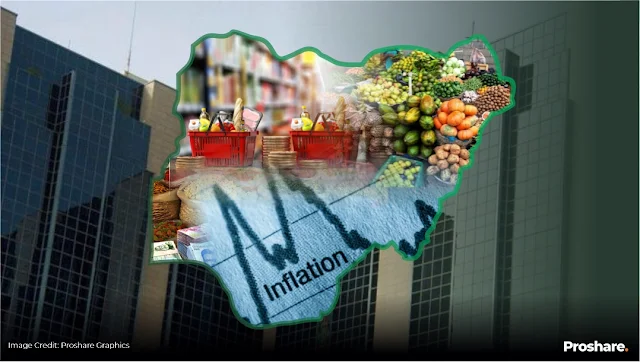Nigeria’s 2025 economic outlook is a careful blend of cautious optimism and grounded realism. While projections hint at potential recovery, the depth of structural problems facing the nation’s economy suggests that only bold and deliberate action will chart a sustainable path forward.
The recent unveiling of key economic indices by the Ministry of Finance and the Ministry of Budget and Economic Planning has reignited the national conversation on how best to reposition the Nigerian economy in the face of persistent inflation, exchange rate instability, and fiscal pressures.
Economic projections indicate a 3.3% GDP growth rate for 2025, modest, but achievable if current policy reforms are not just maintained, but deepened. This expected growth, however, is heavily threatened by the nation’s high inflation, which continues to eat into the earnings and purchasing power of Nigerians. Though inflation is forecasted to moderate to between 26% and 30% in 2025, these figures still represent a significant burden on households and businesses alike.
At the heart of the government’s strategy is the ₦54.99 trillion national budget for 2025—a financial roadmap that signals intent but demands discipline. On paper, it reflects a commitment to rebuilding fiscal stability, with reforms aimed at expanding revenue through better transparency and institutional efficiency. The decision to restructure loans and cap new borrowings at ₦13.1 trillion is commendable, especially in an era where Nigeria's debt servicing continues to threaten capital expenditure. But this will only succeed if the underlying issues of leakages, corruption, and inefficient resource allocation are addressed head-on.
What’s clear is that Nigeria is trying to engineer a paradigm shift—away from overdependence on oil and toward diversification into sectors such as manufacturing, digital technology, creative industries, and agriculture. This is a step in the right direction. But policy alone is not diversification. It must be backed by robust infrastructure, investment-friendly environments, and a reorientation of the country’s educational and vocational systems to equip the workforce for modern industry.
Of all economic variables, however, the state of the Naira continues to be the most troubling. Its instability has become a major deterrent to long-term investment. Investors are wary of committing capital in a currency that loses value faster than it gains interest. A real-world example illustrates this grim reality: an investment of ₦2 million made in 2015 is nominally worth ₦2.2 million in 2025, but in real terms, the value has sharply declined due to inflation and currency depreciation. That sort of economic environment doesn’t inspire confidence; it chokes it.
To salvage the Naira, policy must go beyond statements and strategy documents. Nigeria must urgently increase crude oil production to meet and exceed OPEC+ quotas, thereby improving its foreign reserves. The foreign exchange market must be made more transparent and responsive, and diaspora remittances—which remain one of the most stable sources of forex—must be incentivized through efficient and accessible financial platforms.
None of these will matter if the government continues to ignore the basic economic truth that without stability—both political and fiscal—there can be no real growth. The challenge is not in identifying what needs to be done, but in executing with consistency and sincerity. Nigeria’s economic future depends not just on policy direction but on political will. The current administration must move from promising reforms to delivering them.
The choice before Nigeria is simple: continue down the path of cosmetic fixes and suffer further economic erosion, or commit to transformative policies that stabilize the Naira and drive inclusive growth. The clock is ticking, and the patience of the people is wearing thin. The time for action is now.


